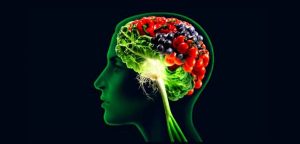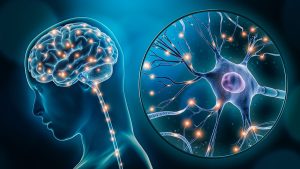Introduction
Eating disorders are a physical and mental health issue that impacts millions of people worldwide. One of the most common eating disorders is anorexia nervosa, which is characterized by extreme weight loss, low body weight, and an intense fear of gaining weight. Studies show that anorexia nervosa has one of the highest mortality rates among psychiatric disorders. Fortunately, anorexia treatment is possible with a combination of therapy, medication, and nutrition intervention.
Identifying Anorexia
Anorexia nervosa is more than just dieting; it is a serious mental health condition that requires professional anorexia treatment. Individuals with anorexia nervosa have a distorted body image, which causes them to see themselves as overweight even when they are dangerously underweight. They may also have an intense fear of gaining weight, which leads them to restrict their food intake severely.
Clinically, anorexia nervosa is diagnosed based on several criteria that include extreme weight loss, a body mass index (BMI) of less than 18.5, and an unwillingness to maintain a healthy body weight. People with anorexia nervosa may also engage in other behaviors like purging, excessive exercise, and self-induced vomiting to lose weight.
The Importance of Seeking Treatment
Anorexia nervosa can lead to severe health complications like electrolyte imbalances, heart failure, and nutritional deficiencies. Without proper anorexia treatment, anorexia nervosa can be a debilitating and life-threatening condition. In some severe cases, it can even lead to death.
Moreover, anorexia nervosa can lead to other mental health issues like depression, anxiety, and suicidal ideation. Thus, seeking professional help for anorexia nervosa is crucial. Early intervention can prevent the development of severe complications of anorexia nervosa.
Treatment for Anorexia Nervosa
Effective anorexia treatment focuses on addressing the physical and psychological aspects of the disorder. The primary goals of treatment are to restore weight, improve nutrition, and address the underlying psychological factors contributing to the condition.
Nutrition Intervention
Nutrition intervention is an essential aspect of anorexia treatment. Nutritional counseling is provided by a registered dietitian to help the individual with anorexia nervosa restore weight and improve their overall nutritional status.
The key component of nutrition intervention is to help the individual establish a healthy relationship with food. The registered dietitian develops a meal plan that is tailored to the individual’s needs and preferences. They also provide education about the importance of a balanced diet and healthy eating habits.
Psychotherapy
Psychotherapy, or talk therapy, is an essential component of anorexia treatment. It is used to address the underlying psychological factors contributing to anorexia nervosa. The most effective psychotherapy for anorexia nervosa is Cognitive Behavioral Therapy (CBT).
CBT helps individuals with anorexia nervosa challenge their negative thoughts and beliefs about food, their body, and their self-worth. It also helps them develop healthy coping skills to manage stress and other triggers that contribute to the disorder.
Medication
While medication alone is not a primary anorexia treatment, it can be helpful in managing co-occurring disorders like depression, anxiety, or obsessive-compulsive disorder (OCD). Additionally, medication can help control urges to engage in purging or restraint.
Types of Anorexia Treatment Settings
Anorexia treatment can occur in several settings, including inpatient, partial hospitalization, intensive outpatient, and outpatient care. The type of setting will depend on the severity of the condition and the individual’s specific needs.
Inpatient Care
Inpatient anorexia treatment is recommended for individuals with severe anorexia nervosa who require round-the-clock medical and mental health care. Hospitalization is also recommended for people who have severe co-occurring conditions that can put their health at risk.
In an inpatient anorexia treatment setting, individuals receive close medical monitoring, nutritional interventions, and therapy to address the psychological factors contributing to anorexia nervosa.
Partial Hospitalization Care
Partial hospitalization care, or day treatment, meets several days a week at a facility, with medical and mental health care providers monitoring the individual’s health and providing treatment throughout the day.
Partial hospitalization care may be recommended for people with moderate to severe anorexia nervosa who have completed inpatient treatment and are transitioning into outpatient care.
Intensive Outpatient Care
Intensive outpatient care is a step-down program for individuals who have completed a more intensive level of care, like inpatient or partial hospitalization. It involves several hours of therapy and nutritional counseling each day for several days a week.
Intensive outpatient care meets the needs of individuals who require structured anorexia treatment but do not need 24-hour medical and mental health support.
Outpatient Care
Outpatient care is the least restrictive level of care and is recommended for individuals who have made significant progress in their recovery and no longer need intensive anorexia treatment. Outpatient care involves weekly therapy sessions and nutritional counseling, which may occur at a clinic or medical office.
Conclusion
Anorexia nervosa is a serious mental health condition that requires specialized anorexia treatment. Nutrition intervention, psychotherapy, and medication are the primary treatment modalities used to address both the physical and psychological aspects of the disorder.
It is crucial to seek treatment for anorexia nervosa as early intervention can prevent the development of severe health complications. Depending on the severity of the condition, the type of anorexia treatment setting may vary, ranging from inpatient to outpatient care.
Overcoming anorexia nervosa is a long and challenging journey, but it is possible with proper treatment and support. With a combination of nutrition intervention, psychotherapy, and medication, individuals with anorexia nervosa can make significant progress in their recovery and reclaim their health and well-being.








